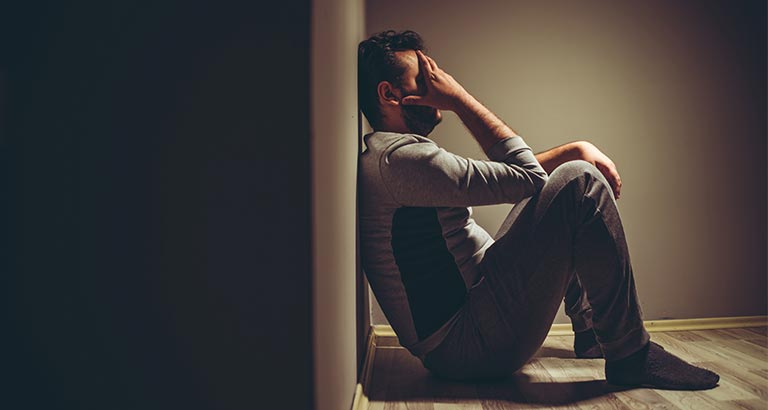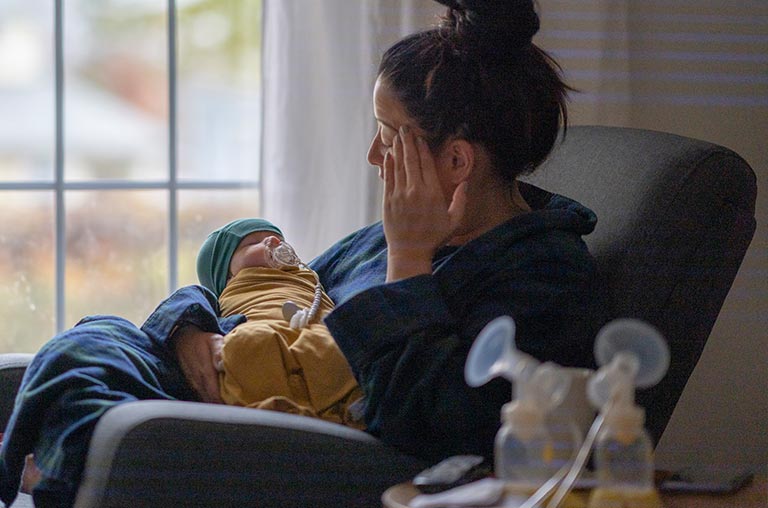
Depression is not just a condition, it’s an environment in its own right. When it sets in, it generates negativity and that brings along its own toxic “family and friends” and they come to stay with you whether you like it or not. Bahrain This Month looks at what depression is, what causes it, how it can be addressed and what the medical professionals recommend.
“I woke up in the early hours of the morning cramped. I had been sitting on the floor in the corner of my room with all the lights turned off and the blackout curtains drawn since yesterday afternoon. I was supposed to travel this morning but the depression that had hit me had removed all capacity to do this. I had sobbed and racked myself to sleep, only lack of water had woken me. As I hunched in the dark, I kept thinking “Help me. Help me...” but no help came, and no one offered. That is the problem with isolation and loneliness. No one cares because no one knows. Everyone thinks life is good but it’s not.
“Slowly I got up, my legs and back stiff from a single position taken over time. I have no desire to live on, I just do it now for want of anything else. I could not get anything done over the last few days. I knew the “black dog” was coming to visit as he always does, I just did not know how intense this visit would be or how long it would last. This one was bad and I dread the next one. They are getting worse and worse, and there is nothing I can do and no one to turn to. I am scared, scared of today and even more afraid of tonight... then there is tomorrow, and tomorrow night... again and again, like the tides washing in and out, the tides of my life. I have no past and no future; I am the black hole of my own life. And this is not a chapter in a book - this is real life, my life...”
A real message sent from a person affected by depression to a friend
Depression is described as a mood disorder that causes a persistent feeling of sadness and loss of interest. Described as a major depressive disorder or clinical depression, it can affect how you feel, think, behave, and react and can lead to a variety of emotional, mental, and physical problems. A depressed person may have trouble doing normal day-to-day activities, focusing, completing tasks and sometimes may feel as if life isn’t worth living.
It is more than just “a bout of the blues”; depression isn’t a weakness it’s a condition and an affected person can’t simply “snap out” of it. Generally, depression requires long-term treatment. But don’t get discouraged - most people with depression improve and feel better with medication, psychotherapy, counselling, and guidance.
Working far from home for extended periods of time often leads to depression for migrant workers and due care and consideration should always be factored in by employers. Allow and help facilitate communication, regular time off and leave when requested. For many workers, being away from friends, family and especially their wives and children is a situation of constant angst and misery. Hence, employers should show empathy, compassion, kindness, and grace.
The harsh Middle Eastern environment also contributes towards depression as extended exposure to heat and dry environments can cause fatigue, heat stroke and other sicknesses that can contribute to depression.
Pain can also contribute to depression. There are two types of pain – Physical pain and Emotional pain. Physical pain speaks for itself. Emotional pain has many faces – pain of loss of something or someone, grievance, circumstances, personal physical or mental state reflection, social negativity and people’s comments or attitudes, loss by deception (theft, fraud, or robbery) or possibly the worst of all – betrayal especially when coupled with deception and infidelity. The physiological effects of betrayal linger long after the event(s) and often last indefinitely… sometimes forever.
Possibly the finest cure for depression is energisation – mental and physical.
There is an old saying – “A change is as good as a holiday”. Change your environment even if it is just going for a walk. Try and associate or get into the company of other energised persons or friends because energy rubs off.
 Types of Depression
Types of Depression
The symptoms caused by depression vary from one individual to another. To identify the type of depression a person has, a doctor or psychologist may add one or more specifiers. A specifier describes specific features of depression, such as:
- Anxiety distress — This is depression with unusual restlessness or worries about possible events or loss of control.
- Mixed — Simultaneous depression and mania, which includes elevated self-esteem, talking too much and exuding increased nervous energy.
- Atypical — Depression that includes the ability to be cheered by happy events temporarily, an increased appetite, lethargy, and an excessive desire to sleep, sensitivity to rejection, and a bodily heaviness.
- Melancholic — Severe depression associated with lack of response to things that previously brought pleasure and is associated with early morning awakening, early morning negativity, significant changes in appetite, and feelings of guilt, irritation, or apathy.
- Peripartum onset — A common depression that occurs during pregnancy or in the periods after child delivery (postpartum).
- Psychotic — Depression with delusions or hallucinations, that may involve personal inadequacy, shortcomings, reflections of failure or other negative connotations.
- Seasonal pattern — Depression related to changes in seasons and reduced exposure to sunlight.
- Catatonia — Depression that produces physical activity that shows uncontrollable and purposeless movement or fixed and inflexible posture.
General Disorders that Cause Depression Symptoms
Some disorders include depression as a symptom. It is important to get an accurate diagnosis from an experienced and qualified medical professional, so that appropriate treatment can be prescribed. These disorders include, but are not limited to:
- Bipolar I and II disorders.
- Cyclothymic disorder.
- Disruptive mood dysregulation disorder.
- Persistent depressive disorder.
- Premenstrual dysphoric disorder.
- Other depression disorders.
Here are a few lifestyle changes that can help depression:
Exercise - Regular exercise can be as effective at treating depression as medication. Not only does exercise boost serotonin, endorphins, and other feel-good brain chemicals, it triggers the growth of new brain cells and connections, just like antidepressants do.
Social support - Strong social networks reduce isolation, a key risk factor for depression. Keep in regular contact with friends and family.
Nutrition - Eating properly is important for both your physical and mental health. Eating small, well-balanced meals throughout the day will help you keep your energy up and minimise mood swings.
Sleep - When you don’t get enough sleep, your depression symptoms will be worse since sleep has a strong effect on your mood. Sleep deprivation exacerbates irritability, moodiness, sadness, and fatigue. Make sure you’re getting enough sleep every night. Very few people do well on less than seven hours a night. Aim for somewhere between seven to nine hours each night.
Stress reduction - Make changes in your life to help manage and reduce stress. Too much stress exacerbates depression and puts you at risk for future depression. Take the aspects of your life that stress you out, such as work overload or unsupportive relationships, and find ways to minimise their impact.
 If you recognise that you may be suffering from depression, seek help and advice as soon as possible – Depression is a slippery slope that gathers momentum fast.
If you recognise that you may be suffering from depression, seek help and advice as soon as possible – Depression is a slippery slope that gathers momentum fast.
This article is not intended to give or provide medical advice. The symptoms and treatments described have been researched and rewritten from appropriately qualified sources. If in doubt, consult a physician without delay. The opinions given in this article are the author’s and do not reflect the opinions of the magazine, owners, or editors.



